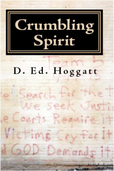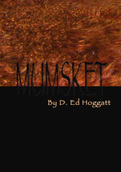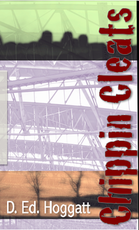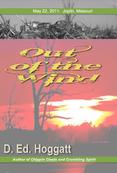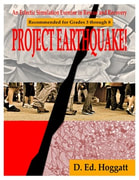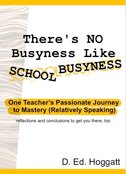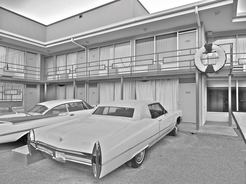 I stood on the spot where former slaves Dred Scott and his wife listened to a judge tell them they were still only the property of an owner. I visited the birthplace and childhood home of scientist and educator George Washington Carver. I stood in a parking lot and looked upward to the hotel balcony where Civil Rights leader Martin Luther King Jr. was assassinated. I drove down Florissant Avenue in Ferguson, Missouri, site of the 2014 race riots following a grand jury's decision not to indict a white police officer for his shooting of an African American. I walked a street in Baltimore, Maryland, where I was the only white man among hundreds of people of color, only to be told by workers at the local tourism office that I should not be there and that I should return to my hotel room immediately. I visited the Springfield, Illinois, location of race riots that spawned the development of the NAACP. Still, I find it very hard to wrap my mind around what some people think is fair. No, I do not understand the idea of "live and let die", "kill for revenge, or hatred of any kind; instead, I try to understand my own responsibilities. I control my own actions and reactions. I know that I am to love the Lord, my God, with all my mind, heart, and soul. I know I must love my neighbor as myself. I understand that I cannot force a person to adopt my faith as his own, but that I can influence a person to adopt faith through education. I understand that I can be wrong, but that I can learn from my mistakes and make changes in my life. I understand that facts, vocabulary, and speech content do matter. I believe that attitudes can be transparent, but that perceptions are not always true. I believe that music reflects and transforms mood, and when properly applied can drive my worship. I believe I communicate with a higher Power when I study my Bible and when I pray. I believe I must remember the Gospel every first day of the week, and that I should do so with both my physical and my spiritual families. I know that I must avoid all forms of idolatry, whether in the form of sports, celebrity worship, material pride, or racism. I understand that people are bull-headed and difficult to positively persuade, while at the same time they are soft and easily tempted to engage in destructive activities. I am under the impression that I can easily to go along with a crowd in order to avoid conflict, but that in doing so I may cause conflict. I know that I should treat other people the way I want to be treated. I know it is not as much the way I act, but the way I react to the hazards and detours in life that make me the person I am. I simply must train my conscience to make the right decisions, train my children to do the same, and respectfully influence neighbors and strangers to adopt mannerly attitudes. I teach. I preach. I write. I speak. I engage the community. But my struggle remains: that communication gap that I have with people who do not understand me. While I sit with a quizzical expression on my face, not understanding irrational racists, violent religionists, adamant disbelievers, and fornication mongers, I must understand that the lack of communication is a two-lane highway, and people often do not understand me either. How do we speak each other's language? How do we bridge the communication gap? How do we understand driving emotion? Irrational fear? Uncontrolled anger? Raging hatred? What part do I have to play? As a parent? As a husband? As a teacher? As a deacon in the Lord's church? As a man? As a Christian? 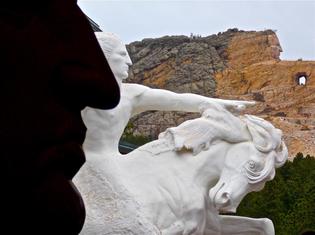 I stood at the foot of Geronimo's grave. I visited Crazy Horse's monument. I walked on the Trail of Tears. I explored Anasazi ruins. I danced with Sioux Indians in Colorado. I visited the Cherokee Nation Headquarters in Oklahoma. But proximity does not always translate to understanding. All I can do is my best to treat people like people, brothers like brothers, and every human being like a member of the single, human race. This year, I wanted to better appreciate what our boys sacrificed on the battlefields nearly 250 years ago.
First I gouged my thigh with an ice pick. It hurt like the dickens but there wasn't much blood. In fact the exit wound was worse than the entry. I tore my own shirt to use as a makeshift tourniquet. Once the sun had set, I limped out into the back yard, and I lay face down in the weeds. Thankfully, it rained enough to be muddy and I was able to find a shallow puddle for my head. The mud soaked into my hair. The wound in my leg throbbed, but I knew it wouldn't likely kill me. Yet, if I moved, I imagined one of the Red Coats would get me for sure. As the fireworks exploded in the neighborhood, they quickly became artillery shells of a different kind. Some were small arms fire while others were British cannon. They exploded all around me, in every direction, filling my ears with their popping and booming. I could smell the gun powder, and I eyes stung with the smoke of battle. For an hour I lay on the battlefield. I forced myself to lie there, expecting for it to end, praying for mercy, begging for it to end, so I could hobble away, find a nearby farmhouse, and beg for quarter, but the shooting would not stop. The ground held the heat of the day, and the throbbing from my leg radiated throughout, all the way into my head. My thoughts swam - back to my childhood - back to the days of hunting with my father, using our rifles for a different purpose: to provide food for our family. Dare I move? Were the Tories and their British friends far enough away that I could at least roll over? I needed to see the sky. I wanted to look at the stars - to make sure they still shone. After a while, the explosions were farther apart, farther away. The skirmish was rolling away, and I risked stumbling from the field. I stepped carefully over lawn ornaments and children's toys - my fellow soldiers, my new friends who had fallen to musket fire or cannonballs - and I went back inside. Try it yourself, the next time July 4 rolls around. You'll gain a much better appreciation for the reality of the revolutionary battles fought by farmers and merchants to win the freedoms we enjoy in this nation. Just a word of caution: get that wound taken care of before infection sets in (You don't want to face revolutionary surgery.). The annual Write to Learn conference has come and gone. This year's conference made for an exciting, eventful, and useful time for attendees. I was happy to attend a day-long session with author Kate Messner, other sessions, and keynotes by the likes of poet Taylor Mali and teacher-guru Ron Clark.
One may read more about the conference in recent and future posts on my classroom website. How would the story be different if Ebenezer Scrooge had been the poor man with the crippled boy and Bob Cratchet had been the rich man. How would Scrooge have reacted differently if he had not had so much money at his disposal? Again, the two walked, this time along a rock path leading from the barn through a quaint gate and toward the house. Not that they had to open the gate, mind you; I only describe the setting so the reader may picture it more accurately. A couple of shaggy horses nipped at the icy grass nearby.
Scrooge recognized all of it – every tree, every fence post, every rock in the wall. He might have had a spring in his step had he not been more frightened at what he would see inside that old farmhouse. As he had not thought about it for so long, so he longed to relive it now. Crystals spread across the windows of the house, somehow making it to be more appealing. As the abode rose before him, Scrooge trembled. Chickens clucked and clawed at the dirt near the front door. Inside, the smell of bread noodles and cranberry pie attacked the olfactory of anyone who entered. To Ebenezer, the smell was too much to bear. Sobbing, he walked up to the ladies in the small kitchen. “M-mama,” he muttered, and then remembered she could not hear him. Scrooge turned to the ghost. “She is my mother, spirit. And there at the table…” A young girl kneaded dough, flattening it, then rolling it into spheres for biscuits. Scrooge could scarcely his emotion. His shoulders heaved with hiccoughing sobs. “Who is she?” asked the ghost. “My my sweet, ornery sister Fan. Look at her – so delicate, yet stronger than any of my schoolmates. Those hands move so fluidly.” Tears streams in rivulets down his dirty cheeks. The ghost feigned ignorance at this. Why, he wondered, did fluid hands cause this reaction? “She died, spirit,” explained the old clerk. “Surely you can see the dead in your realm!” “But she lived to be an adult…” “Aye, but she died in childbirth.” “With your nephew Fred…” “Yes, blast you, with Fred.” “But Fred is a fine young gentleman – an effective legacy for your sister.” Scrooge shook his head. “Oh, spirit, I should not wonder that you do not understand, for certainly, you are the spirit of a temporal activity and not the spirit of a man. Fred cannot be a legacy to my sister, and leastwise not to her name. He bears the Christian name of her husband.” The ghost began to respond, but Scrooge cut him off. “Why do you force me to look upon this house?” “Nostalgia.” “Nostalgia be hanged! I choose not to see it. Take it away!” Scrooge was a basket case of emotions. He yearned to return to the past permanently, and yet as he thought of his own family, and especially of Tiny Tim, Scrooge was only reminded of his own fatherly failure. “These were happier times, man,” said the ghost. “I should think you would smile at their appearance.” “I could not smile, sir. These things no longer exist. These people are forever gone. When my father passed from life, I rested upon me to be the man of the house…” Voice fading into silence, Scrooge sat with his head in his dry hands. “I lost it all,” he said finally. “My family, our farm…everything. These scenes are merely a reminder of my own… I know you mean well, spirit, but seeing Fan and Mama only saddens me for my own wife and offspring. What will scenes of their ‘Christmases Past’ look like? No bread noodles, no rides into the snowy woods. No chestnuts. Not even a biscuit. Instead, they starve and they freeze. It is all on my damnable shoulders, spirit. You are not a ghost; you are a demon! I would rather you take me back to Hades with you than to stay within the boundaries of this farm for one iota longer!” "You are a strange cookie, Mr. Scrooge. Always able to see the worst of a situation.” “Not true! Times have changed! England has changed. What was then quaint and nostalgia has become poverty and despair.” “Perhaps we shall also change, Ebenezer. Let us find another Christmas for you to recall.” |
AuthorD. Ed. Hoggatt is an award-winning fourth grade teacher. Click Titles to Order Now
Archives
July 2017
RECOMMENDED READING
Al Capone Does My Shirts by Gennifer Choldenko
Because of Mr. Terupt by Rob Buyea Charlotte's Web by E. B. White Chippin Cleats by D. Ed. Hoggatt Crumbling Spirit by D. Ed. Hoggatt Echo by Pam Muñoz Ryan Hatchet by Gary Paulsen Holes by Louis Sachar Loser by Jerry Spinelli Mumsket by D. Ed. Hoggatt Out of the Dust by Karen Hesse Out of the Wind by D. Ed. Hoggatt Petey by Ben Mikaelsen Ramona the Pest by Beverly Cleary Stone Fox by John Reynolds Gardiner There's a Boy in the Girls' Bathroom by Louis Sachar Touching Spirit Bear by Ben Mikaelsen Where the Red Fern Grows by Wilson Rawls Yankee Girl by Mary Ann Rodman |
All books are available now. Click on the book jackets to read previews and to order.
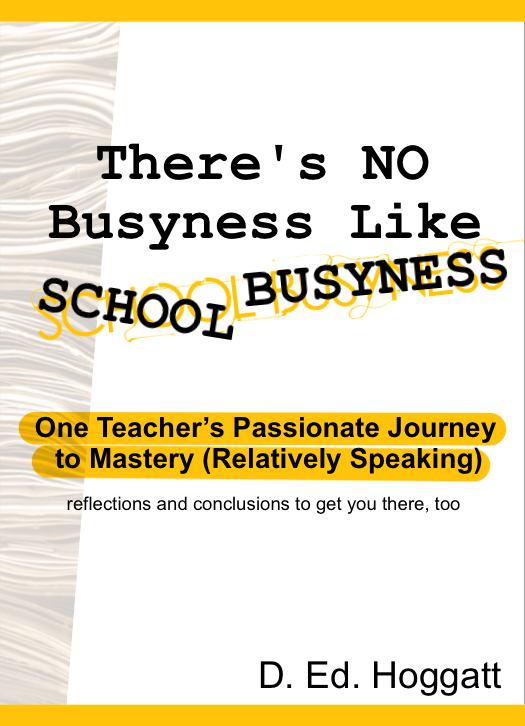





 RSS Feed
RSS Feed
